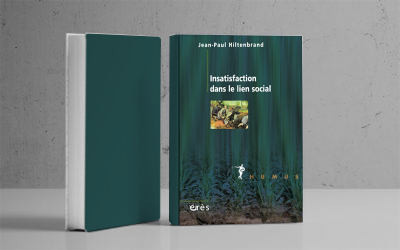Ethical and Aesthetic Explorations of Systemic Practice
New Critical Reflections
Autore: Pietro Barbetta, Maria Esther Cavagnis, Inga-Britt Krause, Umberta Telfener
Editore:
Anno: 2022
Pagine: 172
In Ethical and Aesthetic Explorations of Systemic Practice, the four co-authors come together to rhizomatically consider how systemic theories can be reinvigorated in the present day.
This fascinating book uses the ideas and work of renowned anthropologist Gregory Bateson as a springboard from which to examine the fundamental tenets of systemic theory and practice, as well as looking to the work of Deleuze, Guattari, Maturana, Varela and von Foerster. Including contributions from a range of renowned therapists, each chapter examines the guiding principles from a critical perspective, asking questions around the ontology of the therapeutic encounter and the technique of therapy itself.
This revivifying volume will be of interest to systemic professionals, and those looking at how the systemic community can continue to grow and evolve.
Table of Contents
1. Introduction: Why Ethic and Aesthetic in Systemic Practices 2. Two Regimes of Madness in Psychotherapy 3. Revolutionary Childhood 4. Thoughts from the Outside 5. Getting Sick from Psychotherapy: Our Co-Responsibility in Unintended and Undesired Outcomes 6. Aesthetics, Ethics and Politics in Childhood Matters 7. Clinical Practice as Ecological Aesthetics 8. Babel, Bebel and Other Dangerous Glossolalia 9. Postscript: The Event
Author(s)
Biography
Pietro Barbetta is a psychotherapist, Director of the Milan Center of Family Therapy and Professor of Psychodynamic Theories at Bergamo University, Italy. He is also works as an ethno-clinical therapist with asylum seekers and refugees, and has authored works in English, Italian, Spanish and French.
Maria Esther Cavagnis is the Director of Studies, Clinical Research Team Coordinator and Senior Tutor in the therapist training programme at the Family Therapy Foundation in Buenos Aires, Argentina. She is a visiting lecturer at several universities in Argentina and Latin America and has worked in private practice since 1982.
Inga-Britt Krause is a social anthropologist, Consultant Systemic Psychotherapist and Lead of the Professional Doctorate in Systemic Psychotherapy at The Tavistock & Portman NHS Foundation Trust, UK. She is an international systemic psychotherapy teacher, trainer and supervisor, Visiting Professor in Social Anthropology at the University of Oslo, and consultant to several contemporary anthropological research projects.
Umberta Telfener is a teacher at the Milan School of Family Therapy, Italy and is Chair of the European Family Therapy Association Training Institutes Chamber (EFTA-TIC). Formerly Adjunct Professor at the Health Psychology Postgraduate School of the University of Rome La Sapienza, she has supervised public mental health structures and worked in private practice since 1982. She has authored works in both English and Italian.
Ultimi articoli
Nessun risultato
La pagina richiesta non è stata trovata. Affina la tua ricerca, o utilizza la barra di navigazione qui sopra per trovare il post.
Incontornabile / Incontournable
Imprescindibile è stato nell’insegnamento della dottoressa Drazien l’intreccio tra le questioni, i problemi, i sintomi di ciascuno di noi che seguivamo i suoi insegnamenti e la clinica, soprattutto quella delle psicosi
Insatisfaction dans le lien social
Mettant à l’épreuve l’enseignement de Jacques Lacan, l’auteur soutient avec lui que le lien social est organisé par un discours. Ce dernier instaure d’emblée une béance qui sera à l’origine de l’insatisfaction qu’il faudra bien dès lors reconnaître comme irréductible. Cette béance est à la source de tous les vœux de réforme qui n’en conduisent pas moins à l’échec, voire au pire. Car dans ce mouvement, le danger qui apparaît est sa suture, ce que tend précisément à réaliser l’évolution de notre culture scientifique.
L’Homme sans gravité. Jouir à tout prix
Rejet du «réel» au profit du «virtuel», banalisation de la violence, perte de légitimité des figures de l’autorité, montée des diverses toxicomanies, attitudes inédites face à la procréation comme face à la mort, nouvelles formes de libertinage, difficultés d’une jeunesse sans perspectives, multiplication spectaculaire des états dépressifs…


